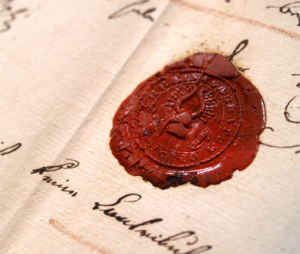In business news. Whether you’re selling, buying or building property in the Caribbean from abroad, there are certain legal documents that you will be required to sign as part of the process. These documents will have been prepared in the Caribbean and sent to you by your attorney for you to sign in the presence of a Notary Public.
What is a Notary Public?
A Notary Public is someone who is specially qualified to, amongst other duties, authenticate and certify signatures to documents that have been prepared in other jurisdictions to that in which you reside. Most of the approximate 1,000 Notaries in the UK are also solicitors. Notaries are appointed by the Archbishop of Canterbury and regulated by the Court of Faculties. They are required to adhere to the same strict rules that govern solicitors. A Notary Public must have full insurance cover to protect his/her clients and the public, hold clients’ money separate from their own, and just like solicitors, they must renew their practicing certificates annually. Notaries are required by law to keep a record of each and every document that they notarise, in addition to which, they must have arrangements in place for their records to be passed on to another Notary in the event of their death.
The duties of a Notary Public are many, but for the purposes of this article we will focus on their role as it relates to dealing with property documents that have been prepared in the Caribbean. The most common property documents for which notarial services are required by UK residents are the Agreement for Sale and the Instrument of Transfer or Conveyance Deed (terminology varies depending on island). It is the role of the Notary Public to authenticate and certify your signature to these documents.
Documents to be presented to a Notary Public
In addition to the property documents to be signed by you, a Notary Public will also be required to verify your identification. The most commonly accepted form of ID in the UK is a passport or a photocard driving licence. Proof of address will also be required, which can be a utility bill and/or bank statement which must not be more than three months old.
Finding a Notary Public
You can contact CaribDirect’s partner Dolores Rice here or The Law Society on 020 7242 1222 for details of the nearest Notary Public to your home or place of work. It is worth noting that Caribbean High Commissioners are also permitted to notarise documents that have been prepared in their respective islands. You should make an appointment to see a Notary Public beforehand, to ensure that the person is in office when you attend with your documents to be notarised.
Returning your notarised documents
Once documents have been notarised, they will bear a value equivalent to at least the fees paid to the Notary Public, which will vary from one Notary to another. It is therefore recommended that you return your documents to the Caribbean via courier service, and always remember to keep copies of your notarized documents for record and future reference purposes.
Submitted by Maureen Smith of Tropical Connections Ltd., a UK-based Caribbean property company.




